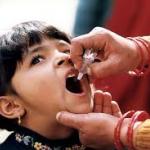How will the final eradication of polio be achieved? How can the lessons learned and assets built up during the last three decades of the eradication initiative be conserved and used to help strengthen global health governance and build effective and equitable health systems?
The Global Polio Eradication Programme (GPEI) initiated in 1988 at the World Health Organization is now working to complete its end stages. Final interruption of the transmission of wild poliovirus (WPV) in the last two polio-endemic countries (Afghanistan and Pakistan) is now targeted to occur in 2016, with certification of global eradication taking place in 2019. Success will depend heavily on reaching the vulnerable populations - especially children - and on overcoming political, social, religious and cultural hurdles in areas that are remote or in conflict. After certification of eradication, WPV will have to go on being produced in large-scale facilities to sustain a global supply of vaccine since there will be a continuing residual risk of re-emergence for many years to come. The issue of containment of WPV will therefore remain a challenge for some time.
The GPEI endgame strategy is also increasingly focused on capturing the many-faceted legacy of polio eradication. In addition to the lives saved, disability prevented and financial dividend resulting from a polio-free world, the assets created during the GPEI include knowledge, trained personnel and systems of organization of vaccination campaigns, surveillance, laboratory testing and contact tracing. The assets must be transferred into developing health systems as countries work towards the Sustainable Development Goal of ensure healthy lives and promoting well-being for all; and must also contribute to efforts to strengthen machineries of global health governance and reinforce other disease eradication campaigns.
The topics in this working breakfast will be introduced by Sir Liam Donaldson (Chair of the Independent Monitoring Board, GPEI), Dr Jason Lane (Senior Human Development Adviser, UK Department for International Development) Dr Rosamund Lewis (Team Lead for Strategy and Analysis, Polio Programme, World Health Organization) and Dr Stephen Sosler (Immunization Technical Advisor, Country Programmes, GAVI) following which there will be opportunity for a dialogue on the polio endgame and legacy. It will focus on the remaining challenges of eradication and continuing vaccination and the policies needed to sustain the endgame and secure the legacy.




